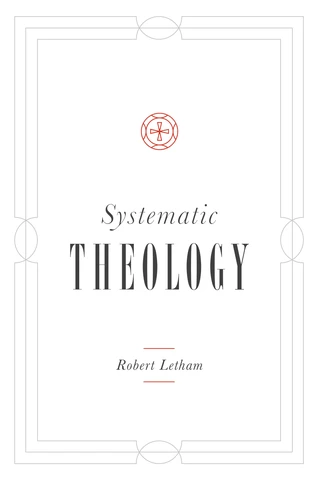
Robert Letham
Reviewed by: Brian Wingard and John Muether
Systematic Theology, by Robert Letham. Crossway, 2019. Hardcover, 1072 pages, $32.78 (Amazon). Reviewed by OP minister Brian Wingard.
This reviewer echoes the words of Sinclair Ferguson in pronouncing this work to be a magnum opus. Yet, in the world of systematic theologies, it is concise when compared to many multivolume works (e.g., Hodge and Bavinck) that are available. This makes the reading of it from beginning to end possible without undue effort, while allowing it also to be quite comfortably used as a reference source. It is titled a systematic theology, but it is almost as much a history of doctrine. This feature has its positive aspects, though perhaps some negatives as well.
Dr. Letham divides his work into eight parts and thirty-one chapters. In these, he covers the recognized loci of systematic theology, though in his titles he doesn’t always use the standard names associated with these loci. Each part and each chapter commence with a summary statement of their contents that is very concise and, on the whole, helpful. Letham’s writing style is fluid and free of the opacity that may be found in some works of this nature. At the end of every chapter, he includes a list of books for further reading, as well as study questions, which are features that would be useful in making this a textbook for classes or small group use.
Letham does not pursue the loci in what might be the expected manner. His first part is titled “The Triune God,” and in it he covers “The Revelation of God” as the first chapter, instead of placing it under the heading of prolegomena, which is often done. Letham declares in a letter distributed to reviewers that in starting with the Trinity he means to show that his focus is on God. It does more than that, however, in reminding us that central to our understanding of God is his triune nature. The doctrine of the Trinity is not to be built upon a foundation of general theism in a building block fashion. The Trinity is who God is.
One feature that Letham underscores in the above-mentioned letter is his inclusion of the sacraments in the ordo salutis. He feels that evangelicals and some of the Reformed have neglected this out of a misplaced fear of Rome and its sacerdotal views. After reading his discussion on this topic, one may wonder whether Letham has feared Rome enough. Is it Post-Enlightenment individualism or is it a fear of finding salvation mediated through the sacraments and not through faith in the gospel of Christ that has caused Reformed theologians to ignore the connection that Letham wishes to emphasize?
Another key doctrine for the author is the doctrine of the incarnation. He helpfully reminds us at several points that without the incarnation we could not be saved, for example, in his discussion of the Nestorian controversy (491). Yet it is my impression that he writes as if salvation is in incarnation per se, rather than in its preparation for the atoning sacrifice of the incarnate one, Jesus Christ. Nevertheless, his coupling of the incarnation with the doctrine of union with Christ is most helpful.
Letham deals with many contemporary issues, for example, open theism, biblical feminism. At these points, he is stronger in his critique than in any other place in his writing. However, in other areas, he introduces figures such as Karl Barth with scarcely a reference to their overall heterodox positions. It is true that this is not done with reference to their specific points of heterodoxy, but he does not sound an alarm that their heterodoxy may seep from one area to another.
This work is to be recommended to pastors, scholars, and informed church members. It ought at some points, however, to be read with caution.
~~~~~~~~~~~~~~~~~~
Click here for a second review of this book by John Muether.
April 14, 2024
How to Read and Understand the Psalms
April 07, 2024
March 31, 2024
My Grandmother Is Praying for Me
March 24, 2024
March 17, 2024
Safeguards: Shielding Our Homes and Equipping Our Kids
March 10, 2024
Ten Words from God: An Exposition of the Ten Commandments
March 03, 2024
Reactivity: How the Gospel Transforms Our Actions and Reactions
© 2024 The Orthodox Presbyterian Church